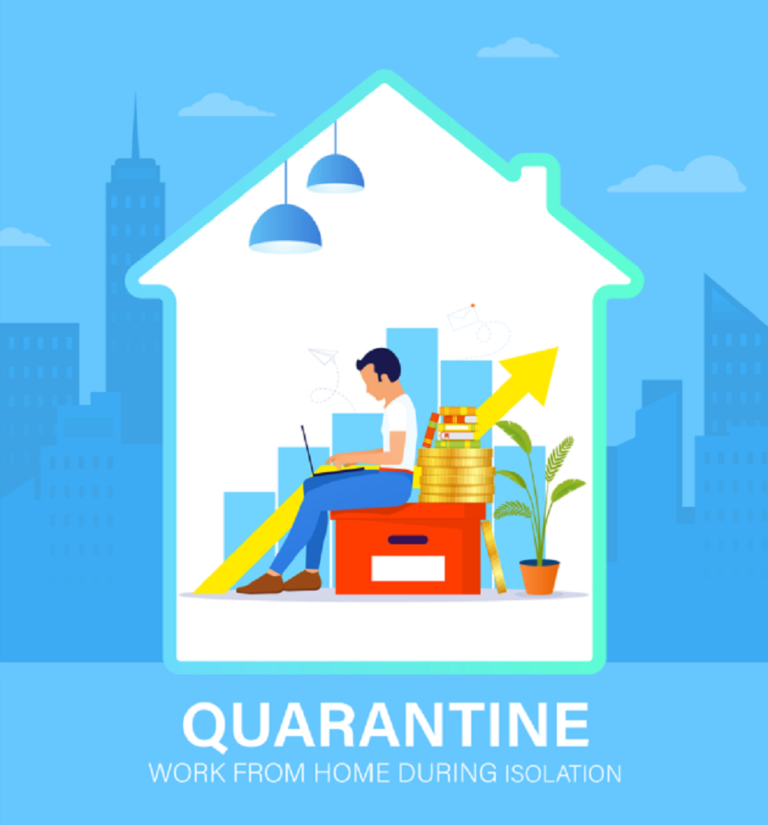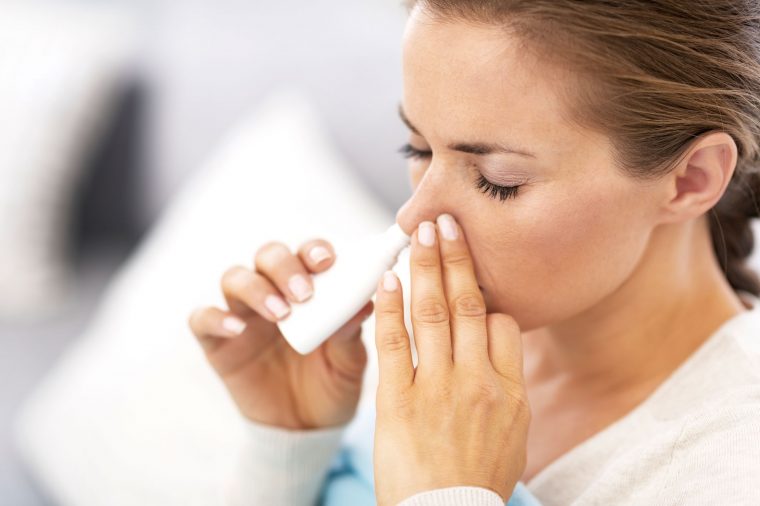
Stop for a second to take a look around. No matter where you are right now, odds are that at least one person nearby is dealing with some sort of allergy. According to the American College of Allergy, Asthma & Immunology, allergies are the sixth leading cause of chronic illness in the United States, and more than 50 million Americans suffer from allergies annually.
But just like any other health condition, it’s not always easy to spot when an allergy attack is happening. Typical symptoms of allergies like a runny nose and watery eyes often get confused with a cold or the flu, and people don’t always know to look out for less common and more serious symptoms like headaches, a swollen tongue, and hearing loss. Herein, we spoke to allergy experts to round up some of the most commonly ignored allergy symptoms that people need to pay attention to.
Headaches
If you find yourself suffering from headaches on a weekly or even daily basis and can’t figure out why, you might have your allergies to blame. According to Dr. Tania Elliott, MD, an allergist and spokesperson for Flonase, allergies that begin in the nose often end up affecting the noggin as well.
“Allergies cause inflammation and swelling of the sinuses and nasal passages,” she explains. “When this happens, there is an increased production of mucus, which then fills up your sinuses. This buildup of fluid leads to headaches.” And since chronic headaches can lead to serious issues like depression, it’s important to talk to your allergist as soon as you notice an uptick in the number of headaches you’re experiencing.
Constipation
In patients with severe food allergies, constipation is one of the most common symptoms. This is especially the case with young children; per one study published in the journal Developmental Period Medicine, approximately 73 percent of children ages three and under who visited a Polish hospital for constipation from 1998 to 2008 were subsequently diagnosed with an allergy to the proteins in cow’s milk.
According to Stanford Health Care, constipation can cause serious health issues like rectal prolapse—in which the large intense detaches inside the body—and fecal impaction—in which hard, dry stool gets stuck inside the body and has to be removed by a doctor, and so you should see a professional sooner rather than later if you’re having trouble going to the bathroom.
Fatigue
“Allergies can make you feel like you are a constant zombie,” says Elliott. Because allergies cause swelling in the nasal passages, people suffering from them typically mouth breathe while they sleep and, as a result, experience lapses in quality oxygen intake throughout the night.
“People with allergies wake up often, whether they realize it or not, and they wake up [in the morning] not feeling rested.” The sleep disruptions associated with allergies are so bad, in fact, that some people who leave the condition untreated end up developing sleep apnea.
Memory impairment
With the immune system working in overdrive and a lack of sleep preventing the body from getting the rest it needs, it’s little surprise that folks with allergies often deal with bouts of forgetfulness and memory impairment.
“Constant headaches and poor sleep add up over time and make you feel like you are not your best self,” explains Elliott. Your memory is something you rely on at work, at home, and in your day-to-day life, so don’t hesitate to head to the doctor if and when your mind starts to get foggy.
Abdominal pain
According to the Cleveland Clinic, cramps and stomach pain are both relatively common and yet all-too-often ignored symptoms of food allergies. Depending on the severity of the allergy, most doctors recommend for folks with a food allergy to either limit their intake of said food or to avoid the food completely—and if they don’t abide by these recommendations, they risk going into anaphylactic shock, which can be fatal.
Rashes
“Rashes like eczema can often be triggered by allergies,” explains Dr. Purvi Parikh, an adult and pediatric allergist and immunologist with The Allergy & Asthma Network. Allergens like pet dander and dust mite are especially triggering for people with eczema, and as the American Academy of Allergy Asthma & Immunology explains, approximately half of all patients with eczema also suffer from hay fever and food allergies. If left untreated, eczema can lead to more serious complications like bacterial skin infections, viral skin infections, and sleep problems.

























